Turmeric has grown in popularity over the past few years, and for good reason. This post will give you the scoop on the amazing benefits of turmeric and why you should add turmeric into your diet today!
Turmeric is a spice that has been around for thousands of years. It has had many uses – from playing a part in certain religious ceremonies to textile dying to enhancing the taste of food.
Its health properties are well known, too, and that is what has me excited about turmeric.
I love the taste and have created a few recipes that include this yummy spice. The flavor is unique, the bright golden color fantastic, and the mild but distinct fragrance lends a subtle scent of ginger and pepperiness to a dish.
But let’s think about the other benefits of turmeric. I’m talking beyond the flavoring of delicious curries and vegetable dishes. I’m thinking of its role as an anti-inflammatory aid and antioxidant, among many other things.
Want to know more? Read on!
WHAT IS TURMERIC?
Turmeric comes from Curcuma longa, a perennial plant that belongs to the ginger family. The plant is gathered for the rhizomes (the part of the plant under the earth that has the nutrients). It is harvested and reseeded for the following growing season. When the root is dried, it is ground into the golden yellow powder we know as turmeric.
The active ingredient in the rhizome, or the root, is curcumin. Curcumin is a curcuminoid and is naturally occurring in the spice. There are 200 milligrams of curcumin in one teaspoon of turmeric.
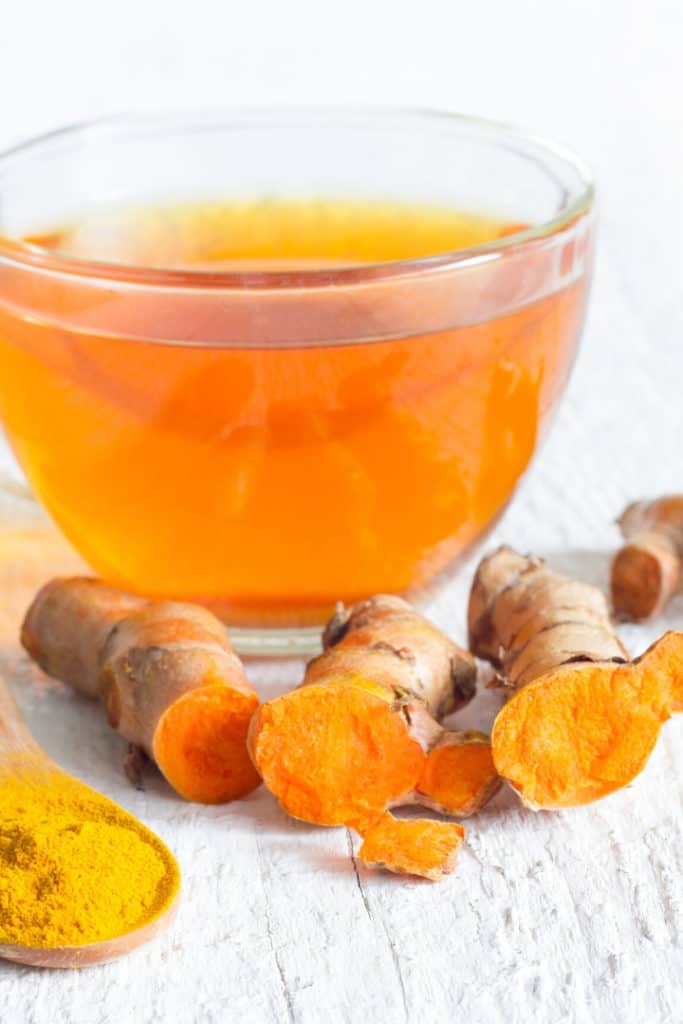
HOW MUCH TURMERIC SHOULD I TAKE DAILY?
The recommended amount to take is still under debate. You see, the curcumin content in turmeric is not high. It’s about 3% by weight.
Because of this, a dosage recommendation is yet to be set. When documented in a controlled study, turmeric is typically given in extract form. This concentration is usually between 500-2000 mg per day.
You’ll have to check with your doctor first, but some people have taken 500 mg in a supplement twice per day with food. Your doctor will give a suggestion based on your overall health.
This is much higher than you would generally find in foods containing turmeric, but that does not mean that including lots of it in your diet won’t be helpful.
In fact, consumption of the spice, curry, which contains spices, like turmeric, cumin, coriander, and fenugreek, has been shown to benefit cognitive health. Turmeric does have other benefits, and we’ll look at those below.
IS TURMERIC GOOD FOR LOSING WEIGHT?
Basically, everything we know about curcumin in turmeric is from studies. There is evidence that it can help with weight loss. Participants who had been trying to lose weight were given curcumin and piperine over 30 days.
The changes in body fat, waist and hip circumferences, and body mass index were significant. It’s possible that your metabolism can be increased by supplementing with curcumin, too.
What is piperine? This is a compound in black pepper that increases the absorption of curcumin. Whenever using turmeric in cooking, be sure to use black pepper to increase the intake.
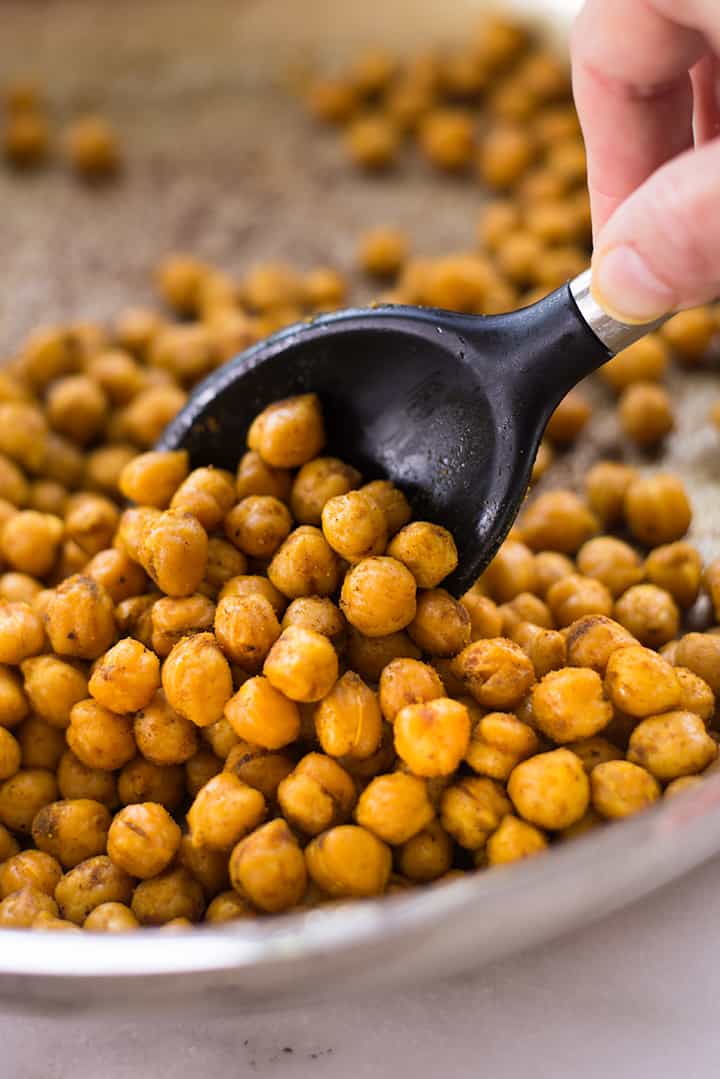
IS TURMERIC ANTI-INFLAMMATORY?
Researchers believe that chronic inflammation can be harmful and plays a role in disease. So, the fact that turmeric is considered anti-inflammatory is just one more reason to include it in your diet when you can. The curcumin in turmeric is a curcuminoid, which is an anti-inflammatory compound.
Several pro-inflammatory diseases have been affected in promising ways by supplementation. When cooking with turmeric, you’ll know that you are taking a step toward better health.
What are ways to enjoy this beneficial spice?
- Add to high-protein lentil dishes
- Flavor rice dishes
- Season fiber-rich vegetables
- Spice up savory soups and stews
- Pair with fish and chicken
- Add to dips and salad dressings
FRESH VS DRIED TURMERIC
Fresh turmeric in the grocery store looks similar to ginger. Turmeric rhizomes (also called roots) will be more intense flavor-wise than dried turmeric. I typically scrape off the peel and cut it into coins or shred it on the grater, depending on the recipe. Don’t buy turmeric that is dry and shriveled up.
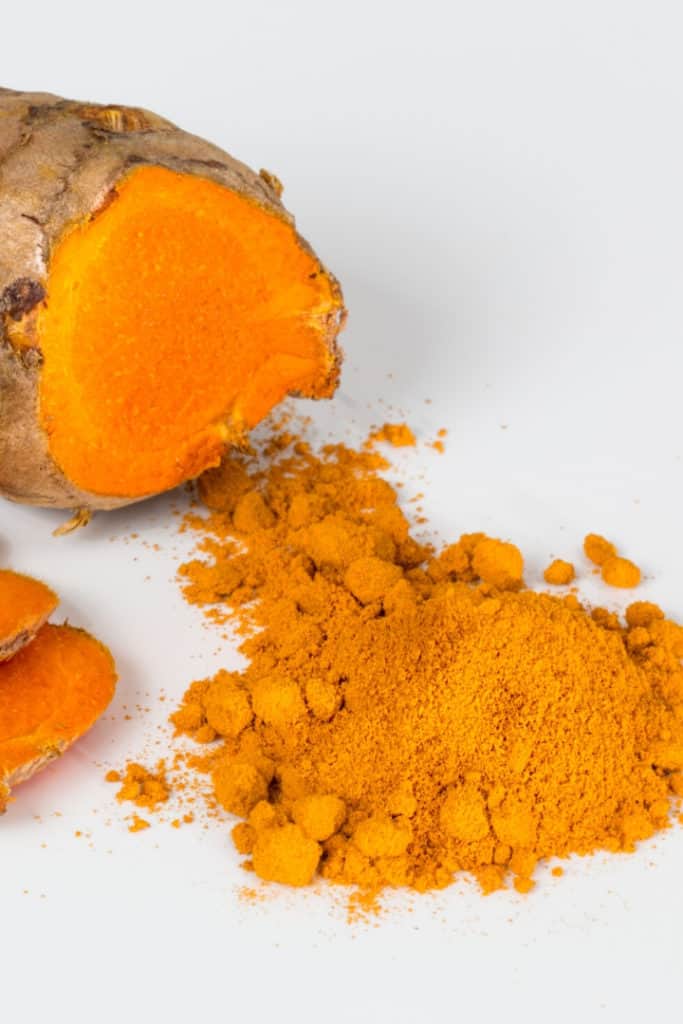
10 BENEFITS OF TURMERIC
Knowing the advantages that a food provides health-wise is a sure-fire way to get you to eat it more often. Like eggs, for example. I recently wrote a post on the benefits of eggs. I learned is that I need to eat them more often – they are packed with nutrition!
So. let's explore this flavorful spice and see the power of incorporating it into your diet. Turmeric is often taken in supplement form to see its full effects. But low dosages found in regular food consumption still have beneficial effects over long periods. Although not a disease curing spice, it is tasty and does do good things for you. Let’s take a look.
- Turmeric increases antioxidant activity: Oxidative damage is the beginning of many common diseases caused by free radicals. Antioxidants protect you from free radicals, and turmeric is known to stimulate the production of antioxidants in the body.
- Turmeric is effective in arthritis patients: Rheumatoid arthritis, in particular, sees improvement in joint inflammation with curcumin supplementation.
- Turmeric may play a role in protection against cancer: Not only may curcumin prevent cancer, but it may also be used to treat it one day. Studies are promising.
- Turmeric increases brain hormone production: The increase in brain function can delay and even reverse some cognitive diseases. Your memory can be improved, too.
- Turmeric may prevent heart disease: The lowering of oxidants and inflammation by curcumin may help protect your heart against disease.
- Turmeric may help fight Alzheimer’s disease: The amyloid plaques that build up in the brain may be reduced by curcumin’s effects. As well, curcumin helps with heavy metal detoxification, known to affect the brain. Turmeric can help regenerate brain cells.
- Turmeric may help with depression: The same link to brain-derived neurotrophic factor that aids in the fight against Alzheimer’s can help reduce the symptoms of depression. Serotonin and dopamine may be increased as well.
- Turmeric may prevent the oxidation of cholesterol: Curcumin works to distribute LDL cholesterol in the bloodstream, so it doesn’t linger.
- Turmeric contains beneficial vitamins: Vitamin B6, iron, potassium, and copper are found in turmeric. Including it in your diet gives you a boost of some essential nutrients.
- Turmeric can help thyroid function: The manganese in turmeric helps the thyroid work as it should. Your thyroid performs many essential tasks that can affect your hair, eyes, heart, and more. Two teaspoons of turmeric give you 17% of your daily intake of manganese.
Take a look at the list of some of the diseases and illnesses where curcumin is thought to play a role in improvement:
- Cancers like colon, breast, pancreatic, and prostate
- Inflammatory diseases like Crohn’s, inflammatory bowel disease, osteoarthritis, ulcers, and uveitis
- Metabolic disorders like diabetes and lupus nephritis
- Cardiovascular illnesses such as acute coronary syndrome
- Other health conditions such as chronic arsenic exposure and gallbladder contraction
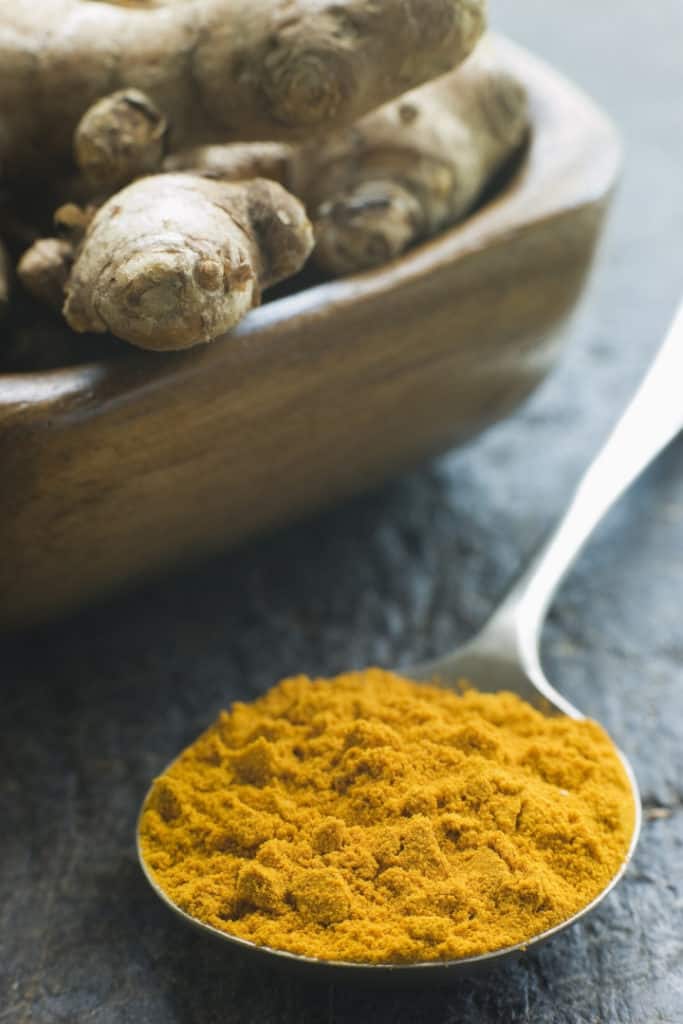
ARE THERE SIDE EFFECTS TO TAKING TURMERIC?
Although it is considered safe practice to take turmeric, there can be side effects in high doses. Some people will experience diarrhea or constipation, stomach pain, and nausea when consuming a lot of turmeric.
If you have kidney stones, don’t take turmeric because it may bind with calcium and cause more stones. Pregnant and breastfeeding women should also take care and speak with their OB/GYN, just because studies are lacking in that area.
People with blood disorders, gall bladder disease, iron-deficiency, and diabetes should avoid turmeric supplements.
As with any supplements, ask your doctor whether consuming them or even high amounts of turmeric in your food, is right for you.
HOW TO BUY AND STORE TURMERIC
Always source organic turmeric. Don’t buy from a bulk bin as the product may be stale and less effective. Store your turmeric powder in an airtight container away from the sunlight and use it within 6 months.
If you are storing fresh turmeric, place it in a bag or container in the fridge for up to two weeks. It can be frozen for a few months.
TIPS FOR TAKING TURMERIC
You can enjoy turmeric's taste in recipes (in India, turmeric is used in everything, and that ensures a healthy dose every day), or you can take supplements. Remember these tips:
- Check with your doctor before taking any supplements
- Your doctor will suggest a dose based on your overall health
- Look for a product with few fillers
- When cooking with turmeric, shop for high quality and organic
- Buy only as much spice or supplements as you need and restock regularly
- Turmeric is more efficient when fresh
- If you experience bloating or other side effects, stop the turmeric

HEALTHY TURMERIC RECIPES
Now that you know the benefits of turmeric, you'll want to give it a try. Look at my 5-day anti-inflammatory diet to see these recipes containing turmeric!
- Matcha Chia Make Ahead Smoothie
- Turmeric Chickpea and Kale Buddha Bowls
- Lemon Turmeric Energy Balls
- Greek Quinoa Salad Stuffed Baked Sweet Potato
- My 2 Fave Anti-Inflammatory Drinks
This post contains affiliate links for products I use regularly and highly recommend.

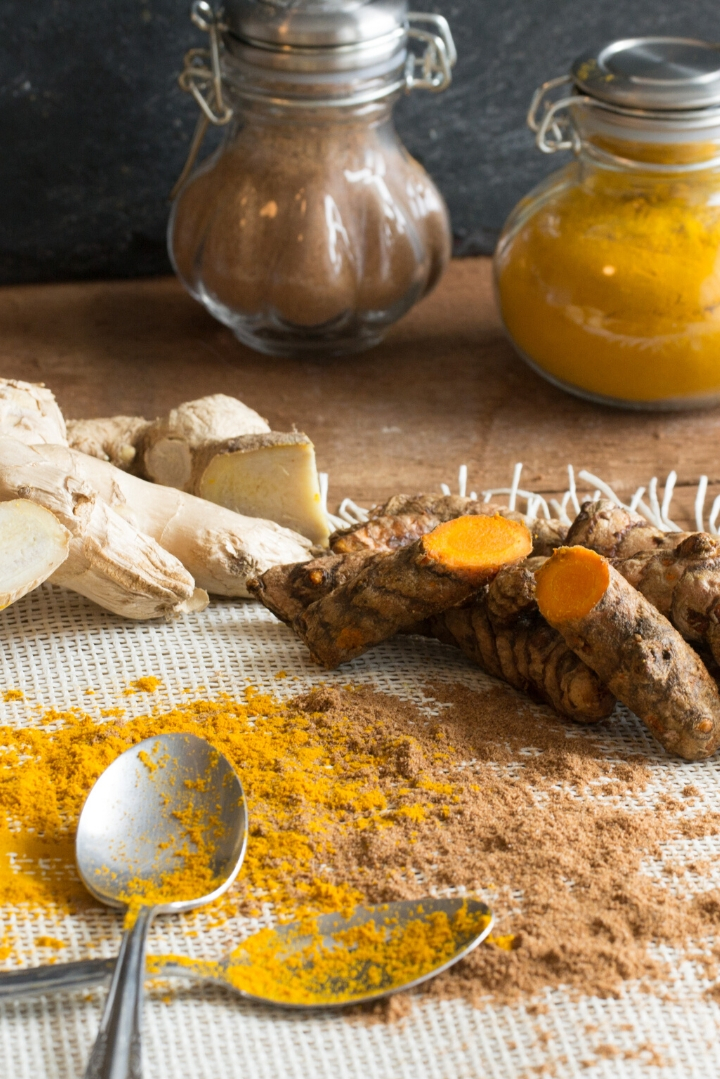
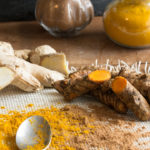
Yashasvi Priyanka Gupta
Thanks for such enriching post!